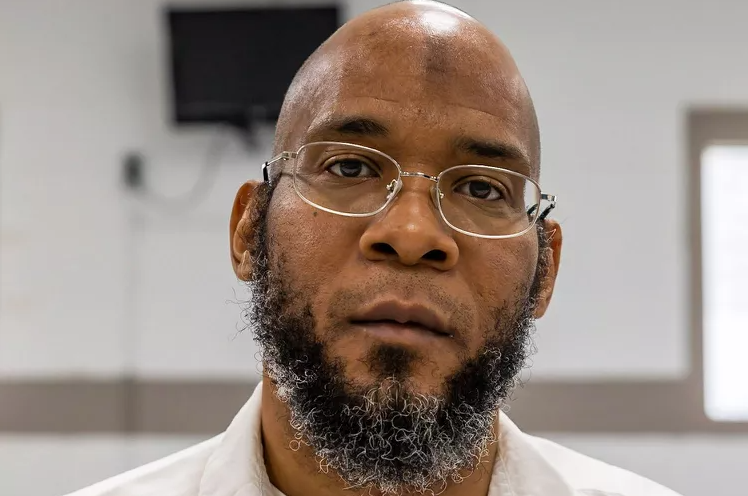Marcellus Williams, a Missouri inmate convicted of a 1998 murder, was executed by lethal injection on Tuesday, despite pleas from prosecutors and the victim's family to spare his life. The case had drawn significant attention, with new questions surrounding the conviction and the integrity of the evidence used to secure it. Nevertheless, the U.S. Supreme Court denied a last-minute appeal, paving the way for the state to carry out the death sentence.
Williams, 55, was pronounced dead at 6:10 p.m. CT at the Bonne Terre state prison, marking the culmination of a decades-long legal battle. His conviction stemmed from the brutal stabbing of Felicia Gayle, a former newspaper reporter, who was killed in her suburban St. Louis home in 1998. Despite the state's actions, Williams' legal team and supporters maintained his innocence, citing DNA evidence that had not been present at the time of his trial.
"We hope this gives finality to a case that's languished for decades, re-victimizing Ms. Gayle's family for years," Missouri Gov. Mike Parson said in a statement delivered by Trevor Foley, the state's Department of Corrections director, following the execution. Parson, who denied a stay of execution earlier in the week, added, "No jury nor judge has ever found Williams' innocence claim to be credible."
However, Williams' defense team, led by attorney Tricia Rojo Bushnell, argued otherwise. In the hours leading up to the execution, Bushnell stated on CNN, "They will kill an innocent man tonight. The prosecutor doesn't want him to be executed, the jurors who sentenced him to death don't want him executed, and the victim's family doesn't want him to be executed. This is a system that values finality over fairness."
The case against Williams had always been fraught with complexities. Though DNA evidence used at trial was later found to be contaminated, with new testing implicating the involvement of law enforcement officers who had improperly handled the murder weapon, the state maintained that this did not exonerate Williams. "The victim's personal items were found in Williams' car after the murder. A witness testified that Williams had sold the victim's laptop. He also confessed to his girlfriend and an inmate," the Missouri Attorney General's office reiterated in defense of the original conviction.
In contrast, St. Louis County Prosecuting Attorney Wesley Bell, who played a significant role in attempting to vacate Williams' conviction, had publicly supported a life sentence rather than execution. In a motion filed earlier, Bell argued that the contamination of the DNA evidence cast doubt on the reliability of Williams' conviction. He was joined by the victim's family, who also supported life in prison without parole instead of capital punishment. Bell said after the execution, "This outcome did not serve the interests of justice."
Despite these efforts, the Missouri Supreme Court and Gov. Parson denied all last-minute attempts to halt the execution, stating that Williams had exhausted all judicial avenues. The U.S. Supreme Court, in turn, declined two emergency appeals on Tuesday. Justices Sonia Sotomayor, Elena Kagan, and Ketanji Brown Jackson noted their dissent, arguing that the case merited further review given the potential for innocence.
The NAACP reacted strongly to the execution, posting a statement on X (formerly Twitter) calling it a "state-sanctioned murder" and asserting, "When DNA evidence proves innocence, capital punishment is not justice - it is murder." The organization promised to hold Gov. Parson accountable for his decision not to intervene.
Williams' last words were "All Praise Be to Allah In Every Situation!!!" He had been a devout Muslim throughout his time in prison, serving as an imam for fellow inmates and working as a poet. His final meal included chicken wings and tater tots.
The execution has reignited debates over the death penalty, particularly in cases involving potential innocence. According to the Death Penalty Information Center, at least 200 individuals sentenced to death since 1973 have been exonerated, including four in Missouri.
Missouri has executed three inmates in 2024, and Williams' death marks the 100th execution since the state reinstated the death penalty in 1989. His case, with its unresolved questions and divided opinions, will likely fuel ongoing discussions about the risk of executing potentially innocent individuals.




